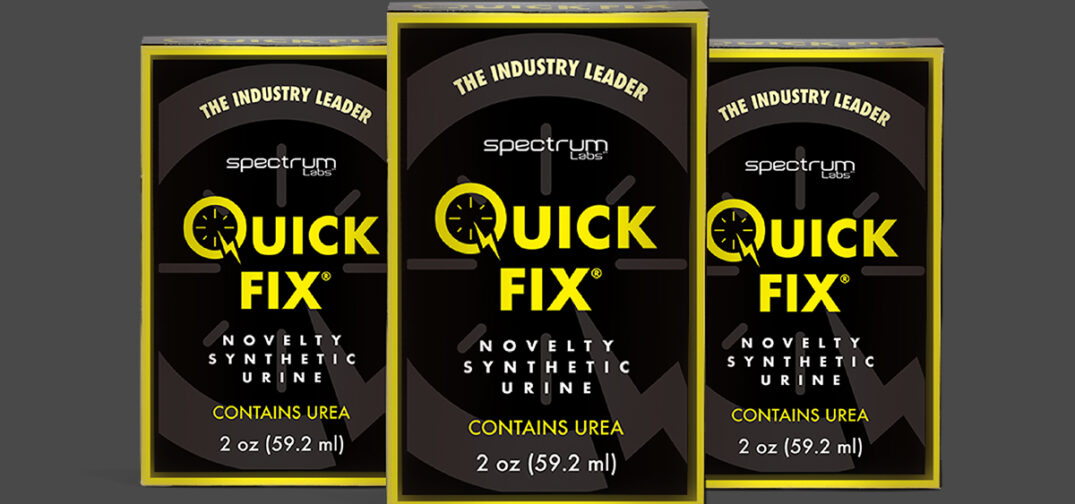Insurance is a crucial yet often overlooked pillar of the cannabis and psychedelic industries. As businesses navigate complex regulations, raise capital, and manage risk, securing proper coverage can make the difference between success and failure. In this episode of the Ganjapreneur Podcast, Joe Ziolkowski, CEO and founder of Relm Insurance, shares insights on the unique challenges cannabis and psychedelic companies face in the insurance market. With a background in alternative risk transfer and a focus on emerging industries, Joe has built Relm into a forward-thinking insurance provider willing to cover businesses that traditional insurers avoid.
From the impact of federal policy changes to the role of radical transparency in securing investment, this conversation sheds light on a side of the industry few talk about—but all businesses need to understand. Listen to the episode below, or scroll down for the full transcript!
Listen to the episode:
Read the transcript:
Editor’s note: this transcript was generated automatically and may contain errors.
TG Branfalt:
Hey there, I’m your host, TG Branfalt, and this is the ganjapreneur.com podcast where we try to bring you actionable information and normalized cannabis through the stories of ganjapreneurs, activists and industry stakeholders. Today I’m joined by Joe Ziolkowski. He’s the CEO and founder of Relm Insurance, which offers insurance for the cannabis and psychedelic industries. How are we doing this afternoon, Joe?
Joe Ziolkowski:
Awesome, TG, thanks so much for having me. Great to be here.
TG Branfalt:
I’m real stoked to get into what you do because I think it’s a very underlooked sort of portion of both the cannabis and emergent psychedelic industries. But before we get to that, man, tell me about yourself. How’d you end up serving the cannabis and psychedelic industries? How’d you get involved in insurance? Tell me the story, man.
Joe Ziolkowski:
Yeah, I mean, I’ll give you the quick and dirty version of it. Ultimately, I’ve been in the insurance industry for about 15 years, and fortunately I came into the insurance industry through, in hindsight, a specialized niche of the global insurance industry. I came into the insurance industry focusing on the alternative risk transfer side of the business. So without going too far into the details, the traditional insurance industry is massive. It’s global. It accounts for trillions of dollars of capital sitting on balance sheets of some of the biggest companies in the world. It accounts for trillions of dollars of premium that are paid by companies in 180 plus different countries. And the traditional insurance market encompasses a lot of traditional companies doing traditional things that yield traditional types of risks. But there are a portfolio of exposures and products that are very non-standard, and a lot of the companies that are looking for solutions or conclusions that just aren’t possible to achieve through the traditional insurance marketplace will turn to what’s called the alternative risk transfer sector, or this alternative aspect of the insurance and reinsurance industry where bespoke products are developed, capacity is created with, let’s say third party investor, capital insurance infrastructure and reinsurance infrastructure is set up to solve very specific and tailored problems.
And if you look at the Fortune 1000, 90% of those companies are accessing products and solutions through the alternative insurance and reinsurance marketplace. And so that’s where I came into the insurance industry really in what I think is probably the most stimulating entry point to an industry that’s considered so boring and opaque by so many others. And I spent eight years just going through solution after solution and product development initiative after product development initiative, really getting I think a unique and super interesting perspective on how this industry works.
TG Branfalt:
So what drew you to it initially?
Joe Ziolkowski:
Yeah, I mean, I had a finance background and I was working for a real estate development company that needed an alternative solution to some of the bonding performance and payment bonding that they were required to secure for some of the projects they were working on. And I got exposure to the execution of this type of solution where they were essentially self-insuring, right, utilizing insurance infrastructure that they owned and controlled to finance those risks in a way that enabled them to keep a portion of the risk on their own kind of affiliated balance sheet and then access reinsurance on a wholesale basis. So the idea ultimately is instead of paying premium to an insurance company that you have no control over, no affiliation with, and you continue to do that year after year after year without filing any claims, that third party insurance company gets to keep the premium and all of the retained profits. In the alternative sense. You could use some of your own insurance or reinsurance infrastructure to retain some of those profits and investment income that would otherwise be kept by some insurance company you don’t own or control. And so I got exposure to that and realized how prevalent this type of solution is for a very specific set of companies doing some of the most sophisticated things in the world and then found myself in the insurance business.
TG Branfalt:
So this is obviously a, could we call it non-traditional sort of insurance? Absolutely. So how is this sort of a non-traditional model ensuring non-traditional businesses such as cannabis and psychedelics?
Joe Ziolkowski:
Well, so I think when you look at the types of risks or the types of companies that approach these non-standard solutions, they are companies in some instances, they’re companies doing new things. If you think about the way that the insurance industry works, it is a backwards looking industry by design. It takes a whole bunch of historical data about a particular type of loss, and it models that data millions of times to effectively predict the future. It’s taking all those historical loss incidences and forecasting the anticipated future frequency and severity of that similar type of loss happening under similar sets of circumstances. And so when you have that historical perspective of a lot of data, it puts the insurance industry in a position better than most industries to actually predict the future. But when you lack that historical data, when you’ve lacked that historical perspective, the insurance industry almost seizes it, right?
It almost can’t put forward a product at a premium that they can stand up in front of regulators and say, with a high confidence level, this premium is going to be adequate relative to anticipated loss because they have no historical data on which to base that prediction. And so regulators essentially put the kibosh on traditional insurance companies trying to come into market for solutions related to new things. And it’s one of the challenges of being an innovator. It’s one of the challenges of pushing the boundaries in even a traditional industry is that when it comes to seeking insurance, which is something that underlies the bedrock of any sustainable industry, accessibility to insurance is a hallmark of a sustainable industry. If you can’t access that coverage, it is literally an impediment to your business model. And unfortunately, a lot of companies who’ve been operating in the cannabis space for the last decade have been running into brick walls trying to find a line capacity that’s going to enable them to raise rounds of funding, get regulated, satisfy insurance requirements in different sorts of contracts, et cetera. So it’s a major challenge for any new industry to find these types of insurance or reinsurance solutions.
TG Branfalt:
So now, are there differences, let’s say, between insurance for a business that touches the plant like cultivators and that sort of thing versus one in the industry that may not?
Joe Ziolkowski:
Yeah, yeah, definitely. Right. And so I think when you look at where I came into the insurance industry and where we’re at today with Realm, it was really kind of this transition of setting up these bespoke insurance or reinsurance solutions for individual companies gaining an understanding of what the insurance industry does really well and understanding what the insurance industry doesn’t do particularly well. And if you’re going to try to maybe compete isn’t the best way to describe it, but if you’re going to try to bring a value proposition to a market as big and as deep and broad as the insurance industry on a global basis, you really have to find those sectors or areas where the insurance industry doesn’t function particularly well. So as I was kind of coming out of the alternative insurance and reinsurance space and looking to provide broader market solutions, it was really a function of saying, what are these sectors that are truly innovative, are emerging, and that I believe are going to be here for a long time?
Not trends that are going to pop up and disappear, but really innovative and emerging technologies or products and services that are going to likely fundamentally change the way that we interact or trade or consume or travel. And those are the industries that I want to focus on from a product and solution standpoint. And the idea ultimately was back in 2019, was to set up an insurance company that we had full ownership and control over that was really only focused on looking forward instead of looking backward. And so when we launched, after receiving our license from the Bermuda Monetary Authority in 2019, our entire strategy as a traditional insurance company was to focus on companies doing really innovative things and bring informed and dedicated insurance capacity and products to the market. So companies across the cannabis supply chain or early stage psychedelics companies looking at different ways of treating really important neurologic diseases could access the type of capacity that they ultimately need. And that’s really the genesis. And I would say the reason for our existence at Realm is to find these companies doing really interesting and important things, but are really inhibited by the slow moving nature of an industry that they didn’t even realize they need the support of in order to grow their business and scale it. Does that make sense?
TG Branfalt:
Yeah. What are some of the challenges when you’re approached by a company, when they’re talking about when they’re looking for your service, essentially, what are some of the challenges that they’re trying to figure out? What sort of roadblocks have been in their way and then they come to you? What do you typically hear? Sure.
Joe Ziolkowski:
Yeah. So when you look at companies operating in the cannabis space, it’s pretty varied, but one I think really important one is if you’re a private company looking to raise your first round of funding or you’re looking at bringing a physician partner onto your staff as a senior advisor, or you’re looking for an independent director to bring credibility to your business model, those individuals are typically bringing a really important professional reputation to the company, and very few of them are going to be inclined to serve in the absence of having directors and officers liability insurance. So if you look at something like directors and officers liability insurance, it exists to provide protection to the directors and officers of your company for doing things in their capacity as a director and officer. And in the absence of that coverage, if you get sued by a regulator, if you get sued by a competitor, if you get sued by a consumer and the individual directors and officers of your company are named, they’re personally liable for defense expenses and judgments that are ultimately levied against the company and them in their capacity. So when you look at companies trying to raise funding and advance clinical trials, it puts the company in a position to onboard really credible talent because it gives that talent a level of confidence and protection against the things that could go wrong in any company that’s pushing the boundaries. Does that make sense? So that’s directors and officers liability insurance, which is a really important coverage.
TG Branfalt:
It’s really interesting because that’s not something that I don’t think anyone listening would really think about is as sort of top line of one of the problems that faces the industry. Now, I get press releases quite frequently, and there’s often some sort of, there are insurance companies or are these sort of different people taking different angles? How can operators figure out what the best option is as far as insurance providers goes?
Joe Ziolkowski:
Yeah, I think one of the hallmarks of a business that is differentiating itself from its competitors in some of these innovative and emerging sectors like cannabis or psychedelics, is a company that actually has a perspective on risk management. It sounds really boring, and it sounds certainly not really sexy compared to a lot of cool stuff that’s happening in the cannabis and psychedelic space. But these companies are trying to build something sustainable. They’re trying to find something that is attractive to as a potential acquisition target, or they’re looking to build something that’s attractive from an investor perspective. And to your point, these entrepreneurs and these founders or these companies of early stage or growth stage companies are so focused on generating revenue and not really appropriately focused on the things that are going to enable them to ultimately scale their business. And when you look at risk management and you look at the important role that insurance plays in any single industry that’s been around for a long time, it is an enabler.
So the thing that I would recommend most to any company, regardless of their stage of existence, but particularly for early stage, is to find an insurance broker that has experience solving insurance related problems for companies operating in their industry sector. And I think in that respect, it’s important to create clarity between the two roles that need to be distinguished within the insurance placement process. You have brokers that work with these companies to understand their business and understand their kind of insurance related needs, and then the brokers go to the local and global insurance market to try to find an insurance carrier that has the capacity and products and willingness to actually take on the risk of insuring these types of companies. So realm is a risk taker, right? We are an insurance carrier that works through brokers who have clients operating across the cannabis or psychedelics ecosystem that need certain types of coverage. So the answer to your question ultimately is the first step is really as a owner or operator of a company in the cannabis or psychedelic space, find a great broker broker that understands your business and start engaging in transparent dialogue about how your company is positioned, the products and services you’re looking to put into the market. And that’s a really critical door opener to understanding how you should be thinking about insurance and risk management.
TG Branfalt:
So what about when you launched your company? I’m sure there weren’t a whole lot of brokers that knew you existed or there weren’t a whole lot of brokers working for cannabis industry companies. How did you sort of link up with them? How did you make those connections?
Joe Ziolkowski:
Yeah, so it’s really interesting because in an insurance market, as big as the global insurance market is what Realm offered was extremely unique. I mean, globally, I think I can sit here and say five years later, we were the only insurance company back in late 2019, early 2020 that had a strategy that was laser focused on providing solutions for companies operating in the cannabis and psychedelic space. The other sector that we were servicing a ton was companies operating in the crypto and blockchain space. So when you look at our overall appetite, it looks nothing like a traditional insurance company. And for us, that means we’re not encumbered by legacy data. We’re not encumbered by bureaucratic hierarchical organizational structures that are used to doing very traditional and normal things. And now we need to branch out and do something very abnormal. Our DNA is really forward looking.
So from our perspective, what we were bringing to the market was number one, a commitment to companies operating in the sector that we actually genuinely believed in and wanted to support. And then if you look at the way insurance brokers work, and this is not to denigrate at all insurance brokers, but it’s largely an income stream that’s based on commission. So if you are functioning as an insurance broker and you have a growing pipeline of clients in the cannabis space that need certain products and you can’t find them anywhere, and you get a whisper of this new insurance company that’s just hit the market that may have an appetite for this sort of thing, you’re going to find out about it real quickly. In our first year of operations by December, we had insurance brokers sending us business from Australia to Canada and some of the biggest names, no way. And it goes to show you the importance of product market fit. It goes to show you the importance of identifying a problem that exists in a particular industry and spending a lot of time making sure you’ve got something that helps solve it.
TG Branfalt:
So you talk about risk and that realm is a risk taker. One of the biggest risks obviously is the sort of status of cannabis and most psychedelics under federal law. Obviously there’s talk from the DEA rescheduling cannabis, keeping in mind that the Trump administration could undo the Biden recommendation and everything like that. But how could insurance cannabis businesses change if the DEA reschedules cannabis or even if a new administration decides to move backwards, what are the ramifications there?
Joe Ziolkowski:
Yeah, I mean, right. This is one of the reasons the cannabis industry is so easy for the insurance industry to kind of turn its back on, particularly in the us. I mean, the schedule one status is an absolute non-starter for most insurance companies. And then when you look at the insurance companies that are willing to support companies, let’s say non plant touching companies in the United States, those insurance companies then have to get comfortable with this state-based approach to regulation and legalization. And that adds a whole area of complexity around what happens to companies operating on an interstate basis. And before it just becomes so easy for insurance companies to say, we’re making, we’re generating a lot of premium over here for traditional companies doing traditional things, and the amount of effort in red tape I’ve got to jump through to dip my toe in the water of something that’s really complicated and problematic, it’s just not going to happen.
And so I think when you look at the idea of regulations or legislations rolling back, I guess what we could call momentum in the United States at a federal level, I’d say it’s problematic for companies operating in the sector. It’s only going to make the availability of capacity and products. These companies need to grow their businesses harder to come by, and they’re left with a supply demand dynamic. And this supply demand dynamic exists in every type of business. If there’s a growing need for something and there’s a dearth of supply, it gets expensive and the types of solutions you need become harder to come by. So that would be an unfortunate turn of events, I would say, at least in the us.
TG Branfalt:
What happens if it goes the other way? Does that open up, if they do reschedule cannabis, would that open up the industry for maybe more traditional players? And is that something that your company is looking at in the future?
Joe Ziolkowski:
Two part question. If they reschedule cannabis, let’s say as a Schedule three substance, I think you’ll see much more market participation. And by market participation, I mean a lot of other insurance carriers who’ve been sitting on the sidelines come into the market with an appetite. And it’s insurance companies that are comfortable ensuring agricultural businesses. It’s insurance companies that are comfortable ensuring consumer packaged goods businesses. It’s insurance companies that are comfortable ensuring retail and wholesale type distribution and retail arrangements. When you look at cannabis as a product, either on the agricultural side of things or something that sits on the shelves of a retail outlet, it looks like a lot of other products with the exception of the fact that right now it’s federally illegal. And when that federal status changes, I think what you would see and certainly would be a benefit to companies operating in the space is increased availability of the type of coverage and capacity that these companies are going to need over the long haul to protect their businesses as they grow up.
TG Branfalt:
And the other thing that you’ve mentioned a couple of times is the reinsurance industry. And we’ve been hearing a lot about that on the news because of all the sort of natural disasters that have occurred in Florida and other states is the changing insurance landscape for things like homeowner’s insurance due to climate related disasters, having any impact on ensuring the cannabis and psychedelic industries. Because from what I’m sort of here and reading the news is that many companies are trying to get out of insuring certain states. And so if you’re insuring, say a lot of businesses in, say, Florida, for example, and is there more risk associated with those manufacturing businesses or those cultivation businesses?
Joe Ziolkowski:
Yeah, I mean, listen, I would say there is a loose correlation between the really negative profitability impact that a surge in natural catastrophes have on certain insurance carriers, and the challenges that companies operating in the cannabis space face trying to find coverage. So what I mean by that is the insurance marketplace is very segmented the same, the insurance companies that are insuring a lot of residential houses in natural catastrophe exposed areas like Florida or wildfire in California are not at all necessarily the same insurance companies that are focused on providing a little bit of capacity companies operating in the cannabis and psychedelic space. So there are circumstances where that correlation is non-existent. But the overall, I think takeaway is that whenever there’s a surgeon in loss experience in one corner of the insurance industry, it can have knock on effects in other aspects of the insurance industry. And typically that knock on effect is reduced capacity increase in prices. So that’s really the major thing to look out for. I would
TG Branfalt:
Say, I just remembered that during the wildfires a couple of years ago, a lot of cultivators, especially in northern California, they did not get those insurance payments, which is why, and I’m not sort of accusing the insurance company broadly or the insurance industry broadly. It’s one of those things that has come up sort of in the past.
Joe Ziolkowski:
Yeah, absolutely. And I think those challenges are, I feel for a lot of the companies operating, especially in the cannabis space in some of these more cat exposed areas, because you can be transacting or providing very vanilla products and services in the California market right now, if you have any sort of property that has wildfire exposure, you’re going to face really extreme challenges finding adequate cover. And then if you bolt on any sort of marijuana related business component to that, the limited pipeline of companies that may have an interest in providing you some sort of property cover gets reduced even further. So again, it’s that supply demand challenge that’s difficult for a lot of companies to navigate.
TG Branfalt:
So what are you looking at as far as the future of the psychedelic industry over the next several years? If it’s something that you’re already looking at, you say you look forward at these industries instead of looking backwards. What do you see that industry looking like as it takes shape, which is obviously happening much slower than cannabis?
Joe Ziolkowski:
Yeah, I mean, I think it’s really fascinating. If you had asked me in 2019 if there was a chance by at some point in our early existence, we’d be ensuring companies using psilocybin, MDMA, ketamine, DMT Ayahuasca, I would’ve said, you’re crazy. Maybe I could see it somewhere in the distant future. But the fact that we’ve been able to engage with companies utilizing these psychedelic compounds to treat things like substance abuse and depression and PTSD, these really impactful, negatively impactful neurologic diseases that don’t really have any solid, consistent, dependable means of treatment, at least in the pharmaceutical sense to me, is super compelling and really important. And when you look at the slow, but maybe building momentum on a global basis of different jurisdictions, legalizing or decriminalizing, you can kind of get a sense for where this is going. I mean, I think Alberta was the first province in Canada to legalize psilocybin.
And you’ve got two states in the us not necessarily the best examples, but they’ve kind of decriminalized. And then you’ve got Australia, which I think is the first country, and you’ve got Switzerland that enables certain types of early stage stuff. On the psychedelic side, you’ve got state referendums here in the US that are on the table to legalize or decriminalize certain psychedelic compounds. And while I agree with you that the momentum certainly has been slower, you can see it building over the next 10 years, and you also can see some of the interest from traditional pharmaceutical companies or biotech companies that are looking at making investments or making acquisitions of companies that are pushing the envelope in some of these early stage psychedelic initiatives. So to me, I think it’s a really interesting perspective and a privileged perspective that we have as a pick and shovel that these companies can use to try to push their initiatives further along.
TG Branfalt:
So lemme ask you personally, because did you know that psychedelics had these sort of medical, let’s call ’em benefits just for the sake of this conversation before getting into potentially ensuring these businesses? Or did the companies come to you and say, Hey, this is what we’re doing?
Joe Ziolkowski:
Yeah, it is a great question and there is an important line there because we really moved into the market with an appetite to support companies operating in the cannabis space and a really beneficial byproduct of ensuring venture funds that were making investments into marijuana related businesses and service providers to companies in that industry. And then of course, companies operating directly themselves as part of a cannabis supply chain is we kind of developed a reputation with insurance brokers of an insurance company, number one with a non-standard appetite, but also one that was willing to put its money where its mouth is, right? And that was a function of quoting and binding coverage for companies doing non-standard things. So to your question, I mean, I wish I could say back in 2019 that I knew psychedelics was going to be this really compelling thing to come around and provide potential solutions to people suffering from these really onerous and painful ailments.
But the beautiful part about us operating in the industry servicing an adjacent sector is that we then became aware of this growing opportunity from brokers that are saying, Hey, would you look at companies using psilocybin for this use or that use case and our objective or our natural response to that type of an inquiry is absolutely, we want to hear about it. And we try to curb our enthusiasm in the sense that just because we say we’re interested to a broker doesn’t mean we’re definitely going to ensure this company just because we hop on an underwriting call and we listen to the company leadership, explain to us how they’re positioning their products or their services, or maybe we get a look at an investor deck and we understand the types of investors they’re trying to raise capital from. That doesn’t necessarily mean we’re going to ensure that company, but it absolutely means we’re going to do our best to investigate, make informed risk selection decisions, and as long as we can get access to this information, we’re going to put our products in capacity behind it. And so that is, I think, a really interesting way that we came around to supporting companies in the psychedelic space.
TG Branfalt:
Can I ask what you say no to?
Joe Ziolkowski:
Yeah. I mean, we say no to lack of information. We say no to, obviously, no, we don’t say yes to anything illegal, but when it comes to ensuring companies in these sectors, for us it’s almost like give us you’re tired, you’re meek, you’re humble, you’re poor, which is to say we anticipate that a lot of the companies that are trying to make headway in these industries are going to be early stage. A lot of ’em are not going to have detailed audited historical financials. A lot of them are going to have cash runways that are measured in months, not years. And our whole objective is we’re not looking for the most mature or the most liquid or a company that’s publicly listed versus privately held. We are looking for companies that are willing to give us access to the information that we need in order to make informed risk selection decision.
So really where we draw a hard line is if our underwriting review and the subsequent question and answers that inevitably precipitate through broker via email or video conference come to an abrupt halt, then we move on to the next risks. And because of that, we have insured companies that are going into bankruptcy or coming out of bankruptcy or are trying to raise a bridge round of funding to keep their company alive or trying to secure a regulatory approval that’s going to enable them to be commercially viable. And so yeah, where we stop is when the information stops flowing,
TG Branfalt:
How closely do you have to monitor state regulations, which change frequently? Does that have an impact on your sector at all?
Joe Ziolkowski:
Yeah. Yeah, it does. I mean, when you think about something like directors and officers liability, that has, depending on the scope of coverage that can provide protection against regulatory enforcement actions. So when you look at the way that we can manage some of that exposure for, let’s say US companies operating in the cannabis spaces, there are a number of regulatory technology companies, reg tech companies that are bolting on to let’s say banks or other service providers that are enabling these companies to manage more programmatically in an automated fashion that they’re doing the appropriate things on a state by state basis to maintain compliance. And so we can leverage access to that technology in order to make much more efficient decisions on not just the current posture of how a company’s operating, but their ability to proactively monitor the impact of state by state changes in regulation.
TG Branfalt:
I will say when I booked this interview, I didn’t expect it to be so full of nuance and risk. I mean, quite frankly, and I’ve spoken to a lot of venture capital CEOs, firms, that sort of thing, and would it be safe to call you a venture insurance company because you’re doing something, you’re working with these startup companies, you’re doing all of these really unique sort of things that I think sort of put you in that category?
Joe Ziolkowski:
Yeah, I mean, it is an interesting way of looking at it. A venture insurance company, I think it’s fair from the standpoint that our starting point is a fairly well-defined thesis in support of companies operating in a particular manner. We have never looked at our movement into an innovative or emerging sector as a hit it and quit it type of strategy. It’s always been a function of is our commitment defined by a belief in what these companies are doing in a way that’s going to yield a sustainable industry that will enable us to scale products and top line revenue in a profitable manner? If the answer’s yes, then we are going to go deeper and broader into that sector with products and solutions and ideas, and that’s probably pretty consistent with the way that certain venture funds approach the way that they deploy capital in a particular sector.
TG Branfalt:
So finally, I want to ask you as a pick and shovel business as a company that really got in before many others, if not completely first mover, what advice do you have for businesses or entrepreneurs that are maybe in your position that are just sort of starting any business really, because I think that you might have an interesting perspective because there is a lot of risk in what you do.
Joe Ziolkowski:
Yeah, I think it could be summed up in two words. Radical transparency. If you are starting a business and you are thinking about building something that is sustainable and is scalable, you need to be prepared to be transparent about the foundation that you’re building that’s going to enable you to do something different than your peers in the market. I think. And if you take our appetite, for example, you can have a company that’s big generating a lot of revenue, but is clearly disorganized to the point where they can’t answer basic questions about their liquidity or their financial position, or they don’t have cap tables that are up to date in order to give us current information about who their shareholders are and to what degree, or if they don’t maintain current entity organizational structures to understand the growing complexity of their operations and organizational structure.
It becomes almost impossible to underwrite those types of companies. But if you’ve got a company that from the beginning is organizing themselves in a way that’s not bureaucratic and full of red tape, but is sensitive to the type of people that they’re bringing onto, their board is very particular about the way that they’re maintaining their financial reporting and is providing and building transparency around the overall operations and their service or product delivery, it is a massive differentiator, not just for an underwriter, but for investors looking to raise capital for counterparties, looking to engage in contracts. And so I think to me, no matter how innovative or emerging the thing is that you’re doing, you’re going to need to face counterparties. Those counterparties are going to have demands of disclosure that you may never have been prepared to provide at the beginning. And the sooner you can position your company and your leadership team to build that approach to radical transparency, I think it’s going to set you distinctly apart from your competitors in the market.
TG Branfalt:
That’s really some of the most, I think, profound sort of advice that I’ve never heard before in my seven years doing this show. So thank you for being so radically transparent. Joe, where can people find out more about you and more about realm insurance, get in touch with you, that sort of thing?
Joe Ziolkowski:
Yeah, I mean, our website is realm insurance.com. You can go on there and learn more about where we’ve come from, where we’re headed, the types of products and services and solutions that we offer. And I think that’s really the best starting point. We have a lot of really smart, capable, creative people inside realm. We’ve got a full-time team of more than 75 people across five different countries now that all bring a really unique perspective on the sectors and the products that we support. So I think that’s really the best starting point for reaching out. We’re happy to have conversations with companies about how they’re positioned, what they’re trying to do, and if they ultimately need insurance, we’re always happy to pass ’em off to an insurance broker that we know is capable and competent of doing business in their sector.
TG Branfalt:
Awesome, man. That is Joel Ziolkowski, the CEO and founder of Rome Insurance, which offers insurance for the cannabis and psychedelic industries. Thank you so, so much for taking the time to have this conversation with me, really enlightening, really interesting, and I really do appreciate it. Thank you so much.
Joe Ziolkowski:
Yeah, thanks for having me. Great to be here.
TG Branfalt:
You can find more episodes of the ganjapreneur.com podcast and the podcast section of ganjapreneur.com and wherever you get your podcast. On the ganjapreneur.com website, you’ll find the latest cannabis news and cannabis jobs updated daily along with transcripts of this podcast. You can also download the entrepreneur.com app in iTunes and Google Play. This episode was engineered by Wayward Sound Studio. I’ve been your host, TG brand.























